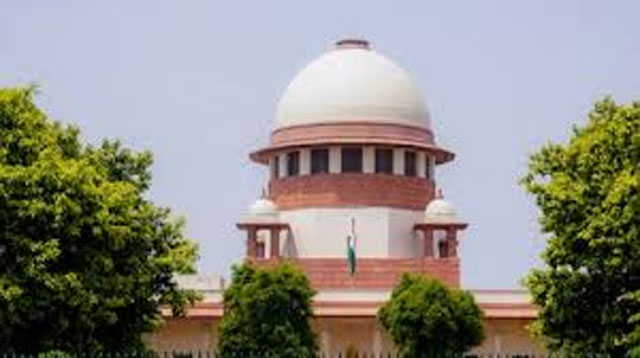Daijiworld Media Network – New Delhi
New Delhi, Oct 15: The Supreme Court on Tuesday extended until further orders its earlier interim stay on the Enforcement Directorate’s (ED) probe into the alleged Rs 1,000-crore liquor scam linked to the Tamil Nadu State Marketing Corporation (Tasmac). The apex court also raised strong concerns over the central agency’s jurisdiction, questioning whether its actions violated the federal structure of governance.
A bench headed by Chief Justice B.R. Gavai, along with Justice K. Vinod Chandran, observed that law and order fall under the exclusive domain of the state and warned that central investigations must not undermine this balance. “What happens then to the federal structure? Law and order has to be worked in its own domain,” Chief Justice Gavai remarked, addressing Additional Solicitor-General S.V. Raju, who represented the ED.

The bench further questioned, “Are you not taking away the right to investigate by the state? Whenever you have a doubt that the state is not investigating the offence, can you go and do it yourself?”
Defending the ED’s role, Raju argued that the case involved massive corruption, with 41 FIRs already registered by state authorities. He added that the agency’s probe was confined to the money-laundering aspect and that “incriminating materials” had been recovered during searches.
Senior advocate Kapil Sibal, appearing for the Tamil Nadu government, countered the ED’s claim, questioning how a government-run company could be raided under the Prevention of Corruption Act when the allegations primarily involved private dealers selling liquor at inflated prices. “How can you raid government cooperative offices? What happens to the federal structure of this country?” Sibal asked.
Senior advocate Mukul Rohatgi, representing Tasmac, echoed these concerns, arguing that the ED’s seizure of employees’ mobile phones and computers violated their fundamental rights under Article 21 of the Constitution, which guarantees life and personal liberty.
The bench recalled its earlier observations from May 22, when it had criticized the ED for “crossing all limits” and “violating the federal structure” of the country, leading to a stay on the agency’s investigation.
In a lighter exchange, CJI Gavai remarked, “In the last six years, we have gone through many ED cases — I don’t want to say it further, as last time I said it, it was reported everywhere.” To this, Raju quipped, “When something is said in our (ED) favour, it’s not reported — that is our grievance.”
With the stay now extended indefinitely, the court’s observations are being viewed as a significant reaffirmation of state autonomy in law enforcement and a stern reminder to central agencies to respect the federal framework.